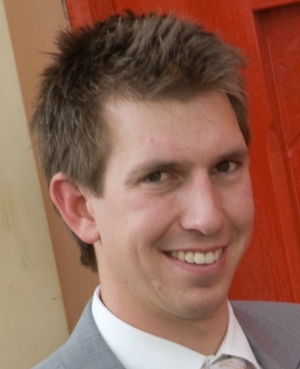Chemistry HDR graduate awarded prestigious Fellowship
Research news
Deakin University PhD graduate Dr Daniel Priebbenow can now proudly call himself a ‘Humboldtian’, after recently being awarded a two-year, fully-funded Alexander von Humboldt Fellowship.
"These highly esteemed fellowships are awarded purely on the basis of academic merit," said s Dr Fred Pfeffer, Daniel’s principal supervisor from Deakin’s School of Life and Environmental Sciences.
"The AVH scheme teams the recipients with top researchers in Germany. Around 600 are awarded annually worldwide to people from all disciplines and, since 1953, 48 recipients have gone on to become Nobel laureates."
For Daniel, becoming a Humboldtian is an honour.
"I was very excited and privileged to be awarded an Alexander von Humboldt Fellowship," he said. "Germany is well regarded by the rest of the world as one of the leading countries for research in chemistry and, as such, this fellowship will allow me to learn from, and collaborate with, some of the most renowned organic chemists in the world.
"The benefits of the fellowship are not just for the next two years, it will continue to provide me with incredible opportunities and support for the rest of my career."
Daniel’s PhD research at Deakin University focussed on new and rapid ways to construct pharmaceutically important heterocyclic molecules using the transition metal Palladium as a catalyst.
Dr Pfeffer says Daniel emerged from his PhD program with four internationally refereed papers, the Rex Williamson Prize, a Royal Australian Chemical Institute (RACI) travel award to attend an international symposium in Norway, and an invited student lecture at the National Heterocyclic chemistry conference - one of only three to be selected Australia-wide. And to cap it off, Dr Pfeffer says, his thesis required no corrections prior to acceptance!
The research project Daniel will be working on in Germany will focus on combining transition metal catalysis (e.g. copper, iron and palladium catalysts) and organocatalysis (e.g. chiral phosphoric acids or proline based catalysts).
The ability of dual-catalytic systems to facilitate a range of transformations, not previously possible by organocatalysts or transition-metal complexes alone, has generated a great deal of recent attention. A number of the products arising from these new reactions are valuable for the synthesis of both natural products and pharmaceuticals hence new, more efficient, pathways to access these compounds.
Put in more simple terms, Daniel will be developing cutting edge methods for the rapid construction of complex molecules for the pharmaceutical sector.
Share this story
 The benefits of the fellowship are not just for the next two years, it will continue to provide me with incredible opportunities and support for the rest of my career, says Dr Daniel Priebbenow
The benefits of the fellowship are not just for the next two years, it will continue to provide me with incredible opportunities and support for the rest of my career, says Dr Daniel Priebbenow
